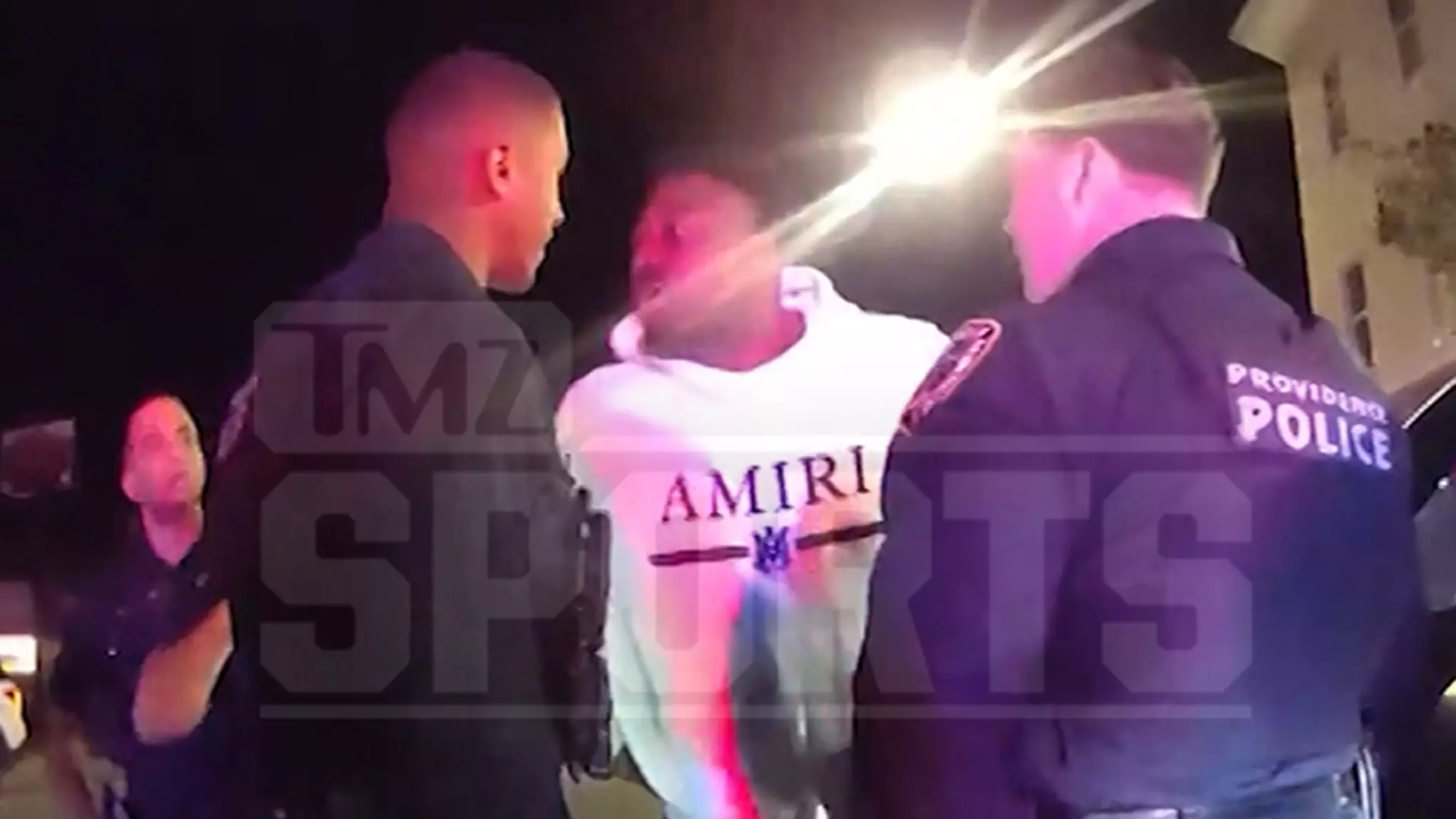In a recent incident that stirred controversy, New England Patriots’ defensive tackle, Christian Barmore, accused the Providence Police Department (PPD) of unprofessionalism and racism during a traffic stop. The altercation occurred in the early hours of Wednesday when Barmore, while driving his Jeep Grand Cherokee, was pulled over by officers. His initial response to the officers was laden with frustration, claiming that they had no valid reason for stopping him. Numerous details have since come to light, particularly through body camera footage, that provide a nuanced perspective on the encounter.
Barmore expressed his discontent via a now-deleted tweet, labeling the behavior of the officers as “racism at its finest.” This assertion underlying the narrative of racial profiling raises critical questions about how individuals—especially those within marginalized communities—interact with law enforcement. It reflects broader societal issues regarding race, policing, and the perception of authority. Barmore’s account is important, given his platform as a professional athlete, but it is crucial to examine the evidence at hand, which indicates a more complex reality.
The PPD released body camera footage that tells a somewhat contrary tale. The footage shows Barmore’s vehicle already pulled over when the officers approached at approximately 12:53 AM. The interaction immediately deteriorated as Barmore displayed reluctance to comply with the officers’ requests. A dominant feature of the footage is Barmore’s perceived hostility towards the officers, which contradicts his claims about unprovoked aggressive behavior from the police.
As police officers attempted to explain the basis for the stop, citing that the vehicle was unregistered, Barmore’s defensiveness escalated into an argument. The situation highlights a fundamental challenge in the dynamic between law enforcement and citizens: the frequent miscommunication that can arise during such stops. Barmore insisted he had committed no traffic violations, claiming he could have outrun the officers if he had wished to evade them.
The back-and-forth reveals how entrenched emotions can impair the de-escalation of tense situations. The officers’ insistence that Barmore’s vehicle would be towed due to the lack of registration intensified the conflict. This part of the interaction serves as an illustration of how procedural enforcement can clash with personal perceptions of injustice in real-time.
Ultimately, the clash resulted in Barmore being issued three citations for operating an unregistered vehicle, driving with expired registration, and having an obscured license plate, without any legal repercussions concerning the marijuana found in his vehicle. The PPD articulated their commitment to enforcing the law while understanding that such encounters can be especially stressful for individuals involved. The event underscores a familiar narrative where individuals in the spotlight challenge the legitimacy of law enforcement while simultaneously confronting their own behaviors.
The incident also raises pertinent questions regarding accountability and repercussions within policing systems. With Barmore’s accusations of racism front and center amid his professional status as an NFL player, it compels society to engage in conversations about systemic racism, policing strategies, and the interpretation of interactions on both sides of the badge.
The incident involving Christian Barmore is emblematic of larger societal tensions surrounding race and law enforcement. It compels an examination of how individuals perceive and respond to authority as well as how those in positions of authority maintain professionalism under stress. While Barmore’s emotions during the traffic stop were palpable, the recorded evidence shifts the narrative, prompting a more extensive discussion on police procedures, racial dynamics, and the need for effective communication between civilians and law enforcement.
As society reflects on this encounter, it is vital to recognize that each case can contribute to our understanding of broader social issues. The complexities of race, power, and perception in policing contexts remain critical areas meriting thoughtful examination, underscoring the need for systemic improvements and community dialogue. The ultimate goal should always be towards more empathetic and constructive interactions, paving the way for mutual understanding between law enforcement and the communities they are sworn to protect.

